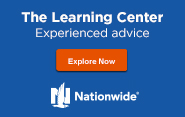Primary tabs
Location
Gates and Gates on Education: The Key to Jobs of the Future
BOSTON (July 28, 2011) -- The intersection of racial equality, education and job opportunities in America was the focus of the National Urban League Conference opening plenary session, “Education: The Key to Jobs of the Future,” featuring a historic conversation between Bill Gates, co-chair of the Bill & Melinda Gates Foundation, and Harvard professor Dr. Henry Louis Gates.
“Education is the key--to better jobs, better family structures, better social institutions, and a better life for all of us,” Professor Gates said. “The National Urban League and its partners work mightily every day and in every field to solve long-standing problems and to create opportunities where they do not currently exist. The National Urban League is leading the way toward creative solutions and necessary reform.”
 The philanthropist and the academician acknowledged the challenges of equalizing educational opportunity.
The philanthropist and the academician acknowledged the challenges of equalizing educational opportunity.
“Education isthe great equalizer,” Bill Gates said. “Yet perversely, the great equalizer in America is stained with inequality. Our public schools range from outstanding to outrageous. And where a child’s school is located on that spectrum is a matter of luck – where you live, when you were born, who your parents are. There is already enough in life that depends on luck. When it comes to education, we should replace luck with equity.”
The plenary session was the opening event for the National Urban League Conference, “Jobs Rebuild America,” which continues through Saturday at the Boston Convention and Exhibition Center.
“We’re so grateful to have the voices of these two outstanding thought leaders who have contributed so much to advancing educational opportunity in America,” National Urban League President and CEO Marc H. Morial said. “It was a dynamic and productive dialogue, and a great start to our Conference.”
###
The National Urban League is a historic civil rights organization dedicated to economic empowerment in order to elevate the standard of living in historically underserved urban communities. Founded in 1910 and headquartered in New York City, the National Urban League spearheads the efforts of its local affiliates through the development of programs, public policy research and advocacy. Today, there are more than 100 local affiliates in 36 states and the District of Columbia, providing direct services that impact and improve the lives of more than 2 million people nationwide.
























